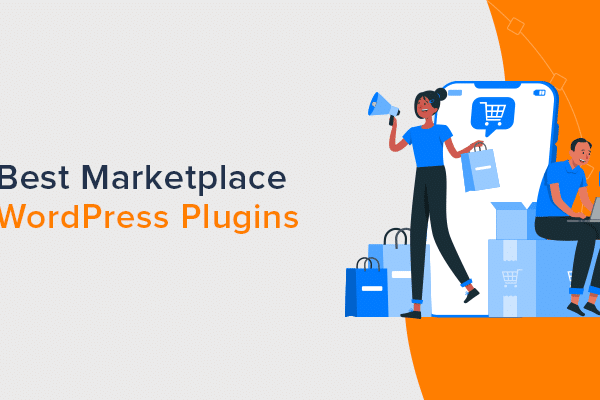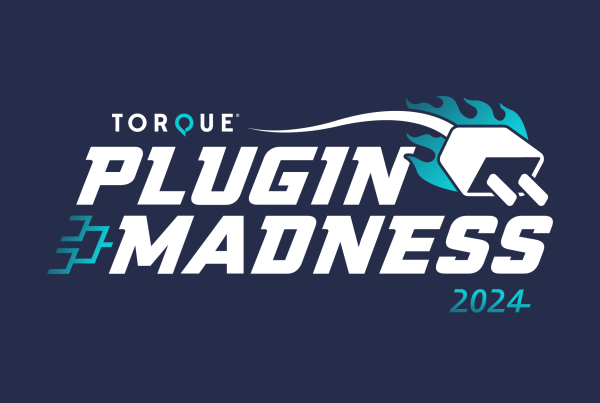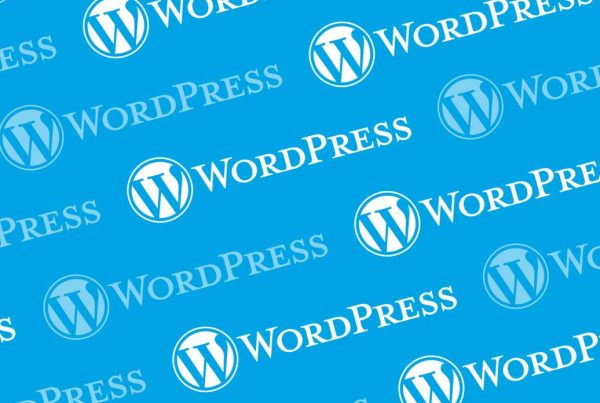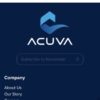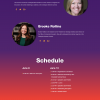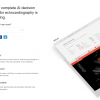Welcome to Press This, the WordPress community podcast from WMR. Here host David Vogelpohl sits down with guests from around the community to talk about the biggest issues facing WordPress developers. The following is a transcription of the original recording.
David Vogelpohl: Hello everyone and welcome to Press This the WordPress community podcasts on WMR. This is your host, David Vogelpohl, I support the WordPress community through my role at WP Engine, and I love to bring the best of the community to you hear every week on press this as a reminder, you can find me on Twitter @wpdavidv, or you can subscribe to press this on iTunes, iHeartRadio, Spotify, or download the latest episodes at wmr.fm. In this episode we’re gonna be talking about the challenges and opportunities of scaling your agency business. And joining us for that conversation is Mr. Vince Graziano Vince, welcome to the press this.
Vince Graziano: Thank you, David. I’m excited. Thanks.
DV: I know I’m excited to have you here. It’s such an interesting and valuable topic for folks out there thinking about scaling up their business. Really excited to hear some of your thoughts today around the challenges you think agencies face with scale in terms of their organization in their revenue and just generally your thoughts around, you know, your strategy around what projects you take on how to get that exponential growth and so, as someone who has lived that journey events, I’m very interested to hear your take on these challenges and strategies so thank you for coming on.
VG: That’s my pleasure.
DV: Cool. So the first question I’ll ask us the same what I asked every guest. Briefly tell me your WordPress origin story.
VG: Yes, so I think, you know, for us we started making static HTML websites back in the early 2000s, but as the World Wide Web evolved. We as a business had to evolve with it to during that transition we searched for a platform that would allow us to scale our business and not necessarily our expenses and WordPress was a perfect fit to allow us to do just that. Obviously the platform. Number one website platform out there with great industrial strength Ark, architecture, has great premiere hosting capabilities 1000s of designs 1000s of plugins kind of out of the box to get the party started. And then when we were thinking about this transition we said hey, we really need to work on a platform, right one platform to allow the production to seamlessly flow through that production line, as well as when we’re recruiting and hiring resources, we don’t have to try to find multiple resources to handle your websites on multiple platforms. And because of this, your WordPress really hit home and really allowed us to scale our business and make sure that we can help not only help our clients quickly and effectively, effectively, but make sure that resources that we’re hiring can handle any task we give.
DV: Oh I have it I love it so you kind of started already kind of in this space of helping clients build their digital presence, and you were doing that with like these hand coded sites and you’re thinking like geez, it must be a faster way to do this and the way to standardize and that that kind of drew you to WordPress, which is very similar actually to my own origin story, at least in terms of using WordPress is kind of like my platform of choice. But when did you when did you adopt WordPress like roughly,
VG: I would say it was about 2008 We started dabbling into it. Obviously, WordPress was kinda newer at the time I think maybe they were still in the 1.0 stages. I think about 2010 was when we really took off with it and started using that as the sole platform,
DV: who you and a lot of other people that was the year, custom post types and custom meta were released in core. And that was a big moment where not only did people start adopting wordpress more like yourself. Other, other major agencies in the WordPress ecosystem as well but that was also the dawn of a lot of tools in the WordPress ecosystem. Things like WooCommerce Genesis and other kind of major popular things we use today so you’re right in there to get sweetspot events happening.
VG: Absolutely.
DV: Awesome, so you running this business private beyond private label, could you tell me a little bit about that.
VG: Yeah so beyond private label. We’re just a white label digital fulfillment agency, we create fulfill and manage a full suite of digital products for agencies, both nationally and internationally products such as obviously websites, videos, SEO, SEM social media management, you name it dudes that are product we probably do the fulfillment for it. Our team here what we do is we really enable agencies to seamlessly offer this full suite of white label digital products to their customers. And then we do all the fulfillment and the customer facing interactions on their behalf. So, once the sale is made we work directly with the client, in a way level fashion to, to create fulfill and manage that that product. This allows our partners to really stay focused on selling and we focus on the fulfillment and management.
DV: You always do that in your business. Did you have like a more traditional agency that preceded that or be on private label do that originally or. We understand that.
VG: Yeah, so we, we did start off in the retail space in the early 2000s And just by some connections, we, we ran into a couple of agencies that wanted to offer these solutions but wanted to kind of keep it under their umbrella, and just have us as a as their website division, and it made sense right it not only did it make financial sense but it, it made sense on our, on our end so that we didn’t have to hire a team of more sales people to go out and sell where we can kind of lean on our channel partners to do the selling and then we do the fulfillment so that blew up quickly, right i mean we adjust our sales catapulted, you know 500% and said hey, this could work in a bigger facet right so we reached out to a lot of other channel partners who had a sales force that had a big book of business and here we are 15 years later, working behind the scenes with a lot of agencies out there and doing all the fulfillment for them
DV: to wind the clock back you’re kind of operating this more traditionally focused agency business. It’s interesting I never heard that or cared but like retail, that makes sense. And, at least in that context, of course. And, but you’re you’re operating it, and you think, like these opportunities kind of come across you play, and you’re thinking like, well, okay great free work, I like that, we’re gonna go ahead and do this and you say it starts to get success there. So, like, did you find as you were thinking about like this, this notion of scaling your agency business into a new area in this case, like white label services. It sounds like you just kind of stumbled into that instead of like thinking like now’s the right time to scale it’s like you’re kind of taking advantage of the opportunity on your plate, would you classify like that.
VG: Yeah, I would I mean, we knew when we were contacted by this, this company they were actually training entrepreneurs at the time. And they said, we have this marketing box like, you know, out of the box marketing set that we want to give all these entrepreneurs when they’re done with the training and websites being one of them. And you know, and they were training, you know, a couple of 100 students. Right, and they said we want. When they’re done, we want them to be able to go out and market that business, and obviously a website has to be part of that market initiative, boom, there you go you know we were, we were doing about 200 a month and then we said, hey, we can really lean on this and go after other channel partners who have got a big sales force and we went to the northeast coast and we had about 17 appointments, we came back with 10 partners and we said let’s do it let’s start hiring, training, and we kind of got off into it.
DV: So, if you’re like conveying this to someone else who is operating a more traditional agency kind of retail agency type experience. It sounds like, like one of the things is what you did anyways was to watch for these opportunities that were in front of you rather than necessarily only relying on this kind of, kind of future invent the future type of thing. It’s more like, Oh wait, no, this is right in front of me and I know how to do this I know what it is, it seems like there’s traction here. It would it be fair to say that your strategy there was more opportunistic than like inventing the future I mean I’m sure you’re inventing it as you go along but it was like, he took advantage of what was right there but
VG: yeah I think the timing was right. Just because with our initial partner, We were already doing some business with, but as we saw the opportunity in front of us, with it being right around 2006 2007 we said you know what, there’s a lot of sellers out there that are, are hungry to sell other items or other products right and obviously digital was it was it was new, but it was the right time right and like Ron, Ron 2006 2007. So when, what we did was we went after, and connected with partners that are we’re selling, maybe print ads or TV ads, radio ads and saying hey, these people also need websites they also need these other digital products right so
DV: that was kind of dialed in on this need, and they had resources that you were able to leverage which allowed you to move faster and of course it also allowed your partners to move faster. Very clever. I want to get more into the details here though because I know there’s somebody listening right now it’s like I’m ready to scale, what do I do, yeah, we’re gonna take a quick break and we’ll be right back.
DV: Everyone welcome back to Press This WordPress community podcast on WMR. This is your host David Vogelpohl I’m interviewing Vince Graziano about scale the challenges and opportunities of scaling your agency business. Then right before the break, you shared your journey, kind of in a traditional agency sense, starting to look into, like, well hey should we read pivot here or exclusively focused on this opportunity of providing white label services to other agencies. And as I think about that and I heard you say like oh we went out hired or whatever they did that, we started to like expand and change who we were. What challenges did you or even do you now still face with like scaling up that kind of new effort and new focus within your business.
VG: To get. I probably have to take a step back and as when we realized that opportunity that was out there to help us really exponentially grow our company. Before we went out and reached out for new opportunities, we really had to make sure our infrastructure and our procedures were in place, right, and that was moving to one platform so that we can easily in and quickly push projects through the production line book Korean those procedures as well. So that when we do need to hire and recruit new resources we didn’t have to sit there and have two to three of our existing employees train, new, new employees right, because that just taps into your production environment which which obviously slows it down and creates a bottleneck. So what we did was when we had the infrastructure and procedures in place, we were able to scale quickly, and that’s really when we took the jump, and said, Okay, let’s go scale this thing which really made it a seamless transition for us because when we brought new partners on and new projects on, we were able to get them right in the pipeline and start building those sites and those products in a timely fashion. And that starts that compound recurring revenue stream that website hosting and maintenance of these other digital products can offer because the sooner you get them live the sooner they get that recurring revenue stream going and obviously that that continues onwards and onwards and grows exponentially month over month year over year. So the question was the challenges, right, and I think having the infrastructure and procedures finalized prior to scaling again made that made it pretty seamless for us but challenges that we hear and that we’ve seen from other agencies, is the hiring, recruiting and training, part of it, right where if you’re not using one platform to create websites for example, it’s tough to find a bunch of different resources that have different skill sets that can only work on specific projects. So, honing in on one platform and putting those procedures in place is going to allow any and all of your employees that you have to be able to work on any project that you give them. So I think that is, go ahead.
DV: I was gonna say it sounds like just from the high level it’s like you almost need the ability to say yes to do, right, you need to have a way of working, what you described is kind of the infrastructure and procedures. You need people to work with and to train them on those things, and you need them to be available either through hiring, recruiting or training and I guess also outsourcing as a potential way to attack these but it sounds like, from the high level, at least if I could add to summarize what you said is, you need the biggest challenge there is the ability to say yes and work.
VG: Yeah, that’s right, right, you don’t want to obviously turn away work which is one of the challenges we hear often is it’s not the right product type or it’s not the right technology. Obviously, the last thing you want to do is turn away work. So, putting that infrastructure in those procedures together is going to like say yes and make good money off of it because those procedures are in place.
DV: Yeah, I remember my agency days I had a lot of partners that would just do like radio and TV ads and then they would outsource the web dev work to me and my team and I found this kind of partnerships incredibly valuable that they would often bill for that straight up with their clients wouldn’t necessarily white label it fully, but it was, you know, they would get a bill from the other agency, and then the agency would pay us for our work and it was a way for them to expand their scope and for us to pick up some extra work which is nice. Absolutely. Like, so as people like agencies or freelancers like think about like well how do we expand our scope like they’ll oftentimes think of like, Oh well, I’ll do a new type of platform or I’ll do a new type of thing. But I think one of the other ways really kind of gets people wrapped around the axle if you will, is the scale of the projects to take on, like if I’m a big agency do I take on smaller deals to make more money in the aggregate, from a small agency do I try to you know swim out punch above my weight a little bit, take on a bigger project. How do you think about the use of like the scale of a project in informing like what an agency should do or not do in terms of scaling their revenue.
VG: Yeah, well I think that compounding recurring revenue stream adds up really quickly, if you do it right, and I think smaller projects can be very profitable. If, if we’re able to price them right and manage them correctly. Right, and especially if you have a lot of them, you know, the key is to price them right to build up that compound a recurring revenue stream. To do so for example if you were to add 15 new small sites a month, and let’s say you build them roughly $150 a month for hosting and maintenance. You’d make close to $175,000 in the first year and probably right around $500,000 After the second year, I mean those are real numbers, right. And we find websites are the stickiest and most profitable subscription based product, because every business needs a website, they’re going to continue to use that website. And I know that every two to three years, these, these clients are going to get a refreshed website or a redesigned website. So you’re going to be the one that they contact first to get that redesign right so this is that really sticky retention play here, and that compound recurring revenue is just going to continue to grow so I think taking on smaller projects is definitely something every agency should look into. Because those numbers that I threw out there that’s only if you had 15 new sites, a month, and that those numbers didn’t include the set of fees. Those were just monthly fees if you’re going out there billing them at $150 a month. Those are, those are big numbers. And then as he talked about a little bit of a goal is, you want to kind of play defense, too, because if you turn down a small website today. They could end up being a huge client that wants full service, And as a huge digital marketing spend tomorrow. You don’t want to lose that, that client. If we had a really good example because this happened a very very long time ago a friend of ours, he got contacted by a company who was making a concept out of their garage. And that company is called five hour energy. And he took on that partner or took on that client made them a very small website, but as you know it today they’re this multimillion dollar business and they’ve probably revamped and refresh their website 10 times over and use their web guy right he’s their web team, and he has had them as a very large client for the last 15 plus years. But he said, No, I’m not interested in this five or 10 page website you’re too small for me right now. He didn’t do that he took it on. And here he is making some good money off of it month over month
DV: is a great points thinking about agencies servicing large brands and like thinking about the value and taking on smaller projects I liked how you coupled in the maintenance plan component of that. And I used to love in the agency business how other agencies would ignore lifetime value because I wouldn’t. And that meant that I got advantages in advertising and, and thinking about projects more holistically and what we would take an eye to have kind of small to large s ri like that’s actually WP Engine. They hired my agency. I guess he’s like nine or 10 years ago now, for a 12 $100, AdWords project which was below our minimum starting point, where we check it anyways and it kind of worked out so yeah you never, you never know what you’re gonna get. I think that’s a really poignant because I think a lot of, you know agencies that have kind of quote, you know, made it or are making it or like oh we don’t care about the small projects but there’s a lot of value buried there. I want to talk to you though about the other way around like I’m small, and I want to go big I want to do more. We’re going to take one more break and we’ll be right back.
DV: Everyone welcome back to Press This WordPress community podcast on WMR. We’re in the middle of our episode talking about the challenges and opportunities of scaling your agency business. That’s right before the break to talk to us a little bit about strategies to think about like if you’re servicing large customers and large projects, thinking about the value of the smaller ones I like you’re kind of LTV type approach future projects recurring revenue. All of that adds up. What about the other way around, I’m small, and I want to branch out. How do you typically think about those strategies or work with your clients when they
VG: think, you know, larger projects are going to bring in a pretty large set of the right, which you’re going to make some really good money on. And too many people, or too many agencies that we see make a mistake of, okay, We were going to build or build this beautiful huge site, but then we give it away and we allow them to host it somewhere else right. What we should do and what a lot agency should do when they’re looking at these bigger projects is tack on the hosting and the maintenance, because the maintenance, Even if you charge them, I’d say 199 a month and you give them an hour or two of changes a month, they’re going to make no changes, it’s going to continuously evolve, you know, week over year, maybe every day, right, they might
DV: feel like the revenue part of it’s clear, I think people are like, No, like if I do a bigger project and make more money in some way but like there’s they’re scared to say yes to the word because they’ve never said yes to that, or they’re scared because it’s like too much money on the line it’s something bigger than they’re used to handling like how to deal with that.
VG: Yeah, you know, you know, growing pains are good pains to have. and I think if you’re, if you’re, if you have the right infrastructure and platforms in place. I’m confident that they’re going to be able to fulfill that project and in an effective way and make really really good money doing it. But also, if not you can always look for that white label website provider that can help you with that because the last thing you want to do is turn away that business because they might have this huge marketing spend. For these other digital products that you service that you can make good money on into perpetuity. So why not lean on a web firm or a white label a website provider that can do that fulfillment for you in that white label fashion keeping that business relationship with you and allow you to be top of mind when they for all other online and offline marketing initiatives.
DV: So the idea there is that you find that area that you don’t do whether it’s building websites or maybe optimizing ad campaigns like that kind of thing you find a partner, whether it be say me I’m guessing maybe freelancers and contractors, but we’re maybe a white label service like what your private label provides. And that’s your path. Yes, so you don’t have to worry about being the expert at that thing is that the test
VG: Yeah that would be, that would be a great idea, right that’s shamelessly plugging it.
DV: I mean, whether it’s y’all or freelancers or whatever it is you can augment it with an expert without actually having to like make that a part of your business officially.
VG: Yeah, my thought would be don’t scale your expenses scale the company and the way to do that is with fixed expenses and outsourcing delivers that,
DV: lot of sense I did this outside of my agency so I have familiarity with it but like it’s a good way to like test stuff out too right like am I gonna really do this I guess we’ll outsource it for two projects and see how it guys. How do you think of like the disclosure side of that, like, do you feel like it just depends on the thing whether you should be kind of upfront that you’re off, outsourcing part of it, I mean that is like these projects could be a blend of like analysing outsource outsource resources and different agencies disclosed or not disclosed, but how do you think about,
VG: yeah you know I always kind of defer, you know, to to our partners and making that executive decision, I mean we, as a company has been on private label we are completely white label we don’t exist. I mean, we never say who we are where we are and anything like that. But if you have the logistics in place branded phone numbers branded emails. You’re never that cats ever going to go the bag that they’re not part of that agency. Also, you can say we have a strategic partnership, right, we have a strategic partnership with this outsource provider. They’re experts at what they do we want to give you the best of the best because we want you to be successful. And that’s why
DV: we’re going to direct the voice and they’re going to do the the technology parts and the design parts, make sure you get it exactly like you need it, something akin to that.
VG: Yeah, exactly. Yeah.
DV: That’s awesome. Well, I know you don’t officially exist, that’s that I appreciate you coming on the podcast today.
VG: That was my pleasure. I really appreciate your guys’s time and hopefully this was informational for people.
DV: Yeah, I think I definitely wish I had heard this podcast 10 years ago, so it would have saved me a lot of headaches and give me a lot of things to noodle on. If you’d like to learn more about what Ben’s it’s up to you can visit beyond private label, calm, thanks everyone for listening to press this WordPress community podcast on WMR. Again, this has been your host David Vogelpohl, I support the WordPress community through my role at WP Engine, and I love to bring the best of the community to you here every week on press.

